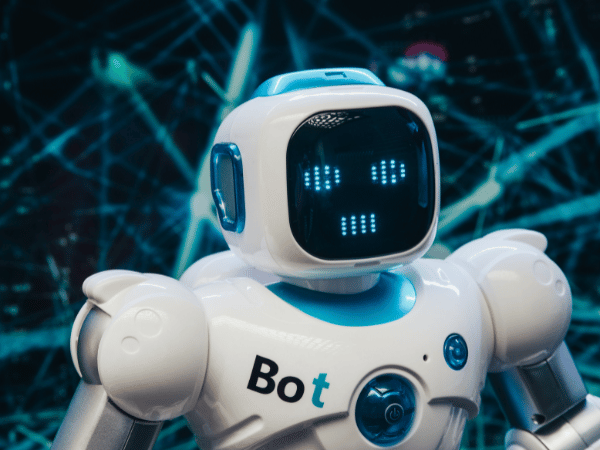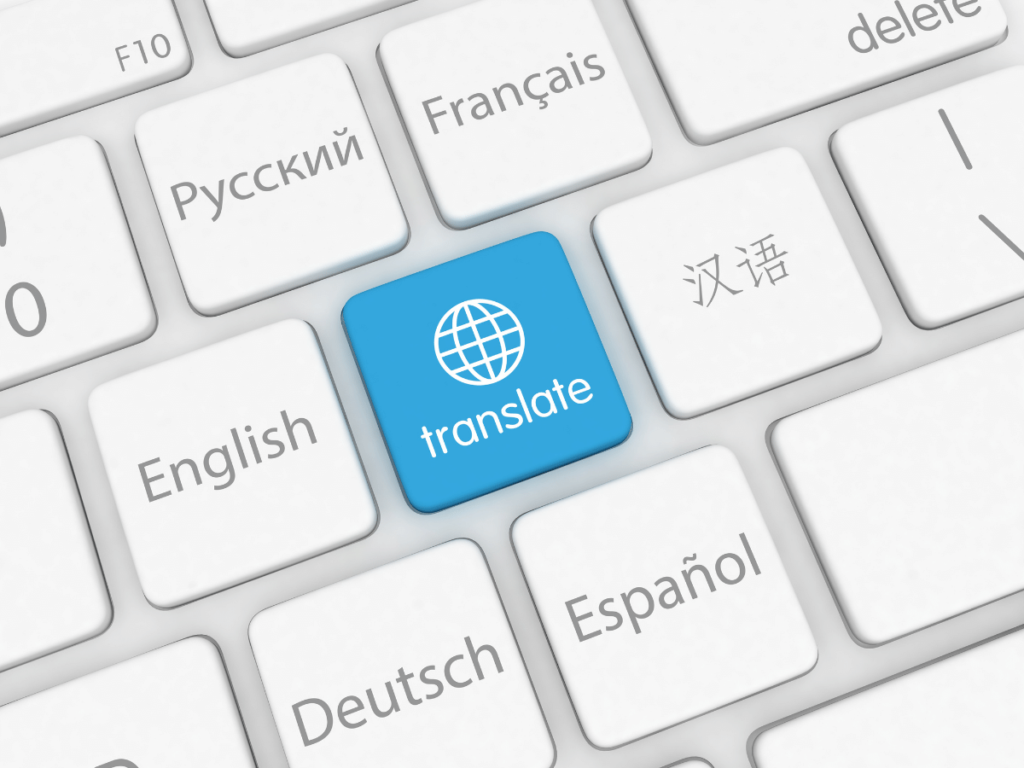AI translation: a danger for the translation industry?
Before talking about the translation industry and its links with AI, let’s define translation. Translation is the conversion of written text from one language to another. It is not the same as interpretation, which is an ‘oral translation’.
The translation industry is continually evolving, partly due to the arrival of brand-new technologies such as AI and Automated Translation software.
Translation is – and will always be – needed, as it is impossible for everyone to learn every language in the world. Of course some people are polyglots, but it’s more of a talent than a normal thing! With 1.5 billion speakers in the world, English is the most spoken language in the world. The second most spoken language is Chinese Mandarin with 1.2 billion speakers. More than 8 billion people live on Earth, so imagine… the most spoken language in the world is ‘only’ known by less than 20% of human beings!
Is this an industry at war with technology?
Firstly, while professional translators are already expert linguists, it took years of study to achieve this.
AI is continually learning and progressing in all fields by leveraging large translation corpora. And it’s learning fast. Thanks to this contextualization of what’s around them, these robots are now able to translate many things quite accurately.
However, at this point in time, human translators are still better than machines.

But these robots have a default: they don’t have feelings!
Human linguists are able to understand emotions through a text in order to change its tone and make it more meaningful depending on the who the speaker and intended recipient are. Conversely, AI-generated translations are less capable of understanding subtleties and nuances.
Human linguists often specialise in a specific fields such as medical, legal and sports. Thanks to specialist expertise, they are therefore are less likely to make mistakes.
Machine Translation Fails
Talking about mistakes, let’s expose a type of AI translation mistake that demonstrates how human translators are more reliable than AI translators.
The main mistake that an automated translator will make concerns polysemic words. For example, ‘an avocado’ in English becomes ‘un avocat’ in French, but ‘un avocat’ also means ‘a lawyer’ in French… Would you eat a lawyer salad? I don’t think so… From this example, it is clear that this kind of error can be easily made by automated translators, which focus on grammatical accuracy rather than meaning. For them, if a sentence is grammatically correct, then there is no problem with it (maybe they eat lawyer salad…).
To this kind of mistake, we can also add the fact that it is easy to discern if a text has been translated by a human being or by a machine, thanks to the quality of final text. Plays on words, figures of speech and style are often lost with automated translation.
These are the reasons why you should always trust a human translator rather than an AI translator, and this is why I believe, at the moment, AI translation is not a threat to the translation industry.
Guest post by Translation Intern Christophe Valensi
Click to learn more about career opportunities at Web-Translations.
Lifting the Lid on Machine Translation Post-Editing
If you’ve used Google Translate, then you would have already used Machine Translation. But you may have also noticed some of the embarrassing blunders that the machine makes. This is why we offer Machine Translation Post-Editing (MTPE).
MTPE is a low-cost translation solution. It allows translations to be generated quickly at a lower cost through the use of machine translation. However, it also uses the human post-editor to put the text into context and helps the translation to sound natural.
What is the MTPE process, and how is it different to other Machine Translation services?
Once we have received the original file, we put it into our industry-leading machine translation software. This software generates a quick and raw translation in the chosen languages. We then send this output to our professional linguists for review. The linguist will correct any errors, improve its readability and adjust the tone and style to meet the client’s needs.
Unlike other machine translation providers, our machine translation software is secure and confidential, ensuring that your content is safe. We can also integrate any existing translations or preferred terminology that your business may have. This means that your translations are consistent and tailored to your brand.

MTPE is a low-budget and quick solution for your translation needs.
Is MTPE appropriate for all types of translation?
Although it may be tempting to opt for the cheaper translation option, this isn’t the preferred solution. We would always recommend getting your content translated and proofread by a professional linguist. Our linguists are qualified to translate and proofread, and are experts in their field.
We understand that this option isn’t always feasible however. You may require large quantities of translation quickly, or have a restricted budget. In these cases, MTPE would be an appropriate solution for most types of text.
Notice the emphasis on ‘most’? Well, this is because some texts should not be submitted to MTPE. Marketing content and creative texts, for example, should only be translated by professional, HUMAN linguists. This will give your text that creative edge, that a machine can’t.
If you’d like to find out more about our Machine Translation Post-Editing service, take a look at our web page.
To find out more about our language solutions, read our services page here: https://www.web-translations.com/services/translations/ Or, if you’d like to talk to us directly, why don’t you fill in our contact form? We’re more than happy to help.
Crowdsourcing and machine translation: the start of a beautiful friendship
Machine-aided translation is one of those things people love to hate. Despite the best efforts of enthusiasts like myself, the majority of computer users still believe that machines are useless translators.
The whole area of machine translation has a terrible image problem. There are endless jokes and “true” stories about computer translation failures. Some of these are very funny (like the machine that apparently translated the English saying “out of sight, out of mind” into “invisible idiot” in Russian). However with a little crowdsourcing help, I suspect the machines may have the last laugh. (more…)
Google discontinues its Translation API
Google recently took the decision to retire its widely adopted API, stating “substantial economic burden caused by extensive abuse” as the reason.
The API has been “officially deprecated” since the 26th of May, and will cease to exist completely this December the 1st.
Google to machine translate patents
Google has confirmed that it will machine translate patents into more than 29 languages, using the Google Translate interface.
On 30th November, an agreement was reached between Google and the European Patent Office (EPO), in order to facilitate the understanding of patents throughout the world.
The world’s first multilingual social network: XIHA
Yet another social network – so what’s special about this one?
Finnish-created XIHA is the world’s first multilingual social network. Facebook, Twitter and LinkedIn do offer content in different languages, but this is supported through a monolingual implementation – you have to choose one language for the user interface, and would mostly update your status & post comments, etc in that language. Multilingual people are therefore not easily able to fully express themselves, as to choose one language might alienate friends and followers who do not understand it.
Is machine translation making a comeback?
Now, before I get shot down by a flurry of irate translators, hear me out.
There’s been an increase recently in the use of post-edited machine translation for some projects where the volume of content is so huge, and the time window so short that human translation, and then proofreading and subsequent editing of the text, would just not be practical. We at Web-Translations are observing this trend with great interest. (more…)




